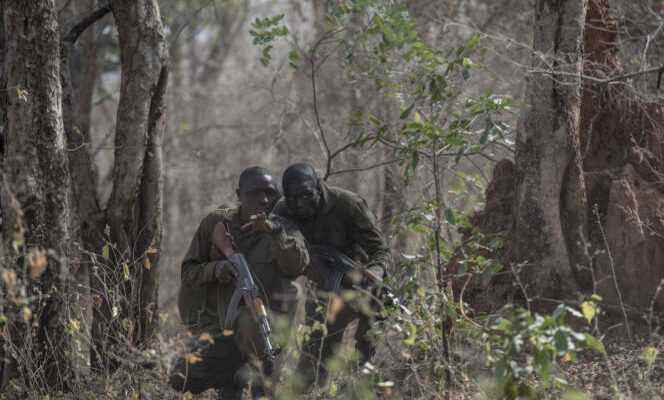To not miss any African news, subscribe to the newsletter of the World Africa from this link. Every Saturday at 6 a.m., find a week of news and debates covered by the editorial staff of the World Africa.
At the back of the cafeteria in blue sheet metal where he has his habits, Bachirou Touré’s face darkens. On a rattan chair sunk into the ground, the president of the Fulani community of Tanguiéta warns: “If you have to go back to Natitingou, leave now. At night, it’s really dangerous. »
It is only 5:30 p.m., the sun is barely beginning to set and less than an hour’s drive separates these two towns in northwestern Benin. But danger lurks in this border region with Burkina Faso, where security continues to deteriorate.
Since November 30, 2021, at least twelve attacks attributed to jihadist groups have hit the Beninese security forces, i.e. one every two weeks. On June 26, armed men opened fire in front of a police station in Matéri (north-west). During this attack which has not been claimed, two police officers were killed according to the staff of the armies.
And worryingly, jihadist cells from Burkina Faso are gaining ground, according to several local sources and the work of a security expert analyst who prefers to remain anonymous. The Support Group for Islam and Muslims (GSIM), an organization affiliated with Al-Qaeda, actively recruits among the Beninese population.
“A securocratic regime”
“We know they are there, among us. We learn to live with them without provoking them,” quietly whispers a restaurant owner from Tanguiéta. According to several testimonies, unemployed young people were offered 100,000 CFA francs per week (about 150 euros) by jihadists in exchange for information.
Faced with this mounting danger, the government has opted for minimal communication. Almost nothing filters the repeated clashes between the Beninese army and members of armed groups. Only the most publicized events lead to laconic press releases. Like on February 8, when eight soldiers and rangers lost their lives in an ambush in the W park, on the border with Burkina Faso. Among the victims, a former French soldier. The information made the rounds of the French media.
“The event was so strong that they could not not communicate. Faced with the evidence, they are forced to react,” explains Expedit Ologou, a Beninese political scientist specializing in security and defense issues. According to the expert, president of the think tank Civic Academy for Africa’s Future, the silence of the authorities is part of a well-established communication policy.
You have 61.01% of this article left to read. The following is for subscribers only.
